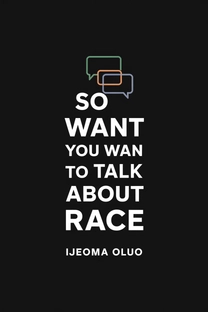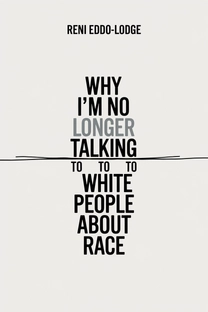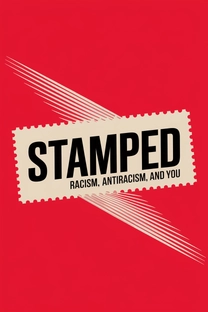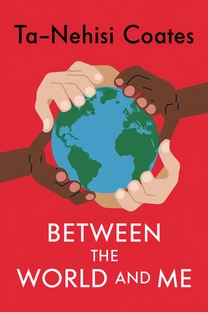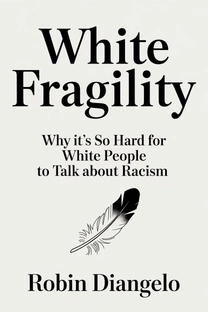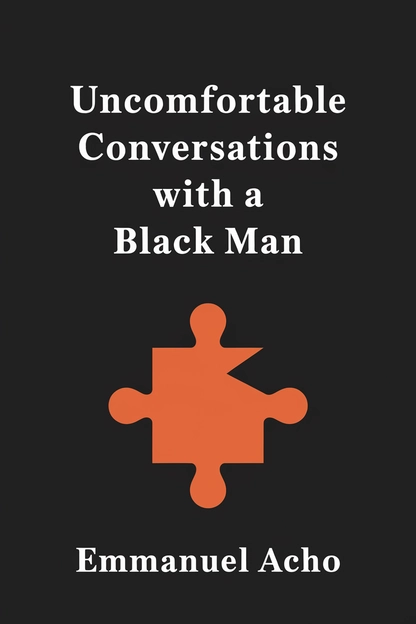
Uncomfortable Conversations with a Black Man
by Emmanuel Acho
Brief overview
This book offers a warm, down-to-earth examination of the realities of race in America, highlighting the importance of open dialogue and empathy. It explains how historic injustices still strain the lives of Black people, pointing toward solutions that involve honest conversations and committed allyship. By the end, readers gain both a deeper appreciation of past struggles and a tangible sense of how to create a more equitable future.
Introduction
It’s never easy to talk about race, but avoiding the conversation doesn’t make our problems go away. Instead, an open discussion can shed light on injustices and help people grow in empathy. This book begins with an invitation to a safe space—a place where you can ask questions, confront stereotypes, and explore new perspectives.
Sometimes, the hardest part is just getting started. Yet, as with any major challenge—think of learning a new skill or pushing your body during a workout—a little discomfort is the price of real progress. Here, the discomfort is emotional, but the payoff can be powerful and liberating.
Cutting through media noise, personal anxieties, and fear of saying the wrong thing, this introduction reminds us that talking about racism is vital. We’re all in this together. Everyone benefits from living in a fairer country, and these pages promise to guide you gently but firmly toward a deeper understanding.
The Language of Race
Our words reveal how we understand each other, especially when talking about race. For instance, the history of naming Black Americans is tangled—from days when “colored” or “Negro” were common, to modern debates between using 'Black' or 'African American.'
Recognizing the nuance behind these terms is crucial. “Black” speaks broadly to shared experiences of people of the African diaspora, while “African American” highlights cultural heritage. Ultimately, each person has individual feelings on terminology, but language—whether in social conversation or formal situations—carries real weight.
Being mindful of what we say—including how we reference someone’s identity—can help create mutual respect. It also alerts us that words, left unexplored, can harm. From reclaiming phrases to explaining why certain labels have fallen out of use, the language of race matters more than many people realize.
What is Uncomfortable Conversations with a Black Man about?
Uncomfortable Conversations with a Black Man offers an approachable but impactful look at how race can shape daily life in America. Emmanuel Acho uses personal experiences, historical events, and thoughtful commentary to examine both systemic barriers and the everyday microaggressions that Black people often face. Rather than blame or shame, he emphasizes bridging gaps and answering the questions that many people might have been too nervous to ask. Each chapter highlights the growing need for open dialogue, showing how honest empathy can drive meaningful social progress.
By demystifying terminology and tracing the institutional roots of injustice, this book walks readers through the continued influence of discrimination in modern society. Through candid observations, historical context, and real-world examples, Acho motivates individuals of every background to confront their own prejudices and learn how to advocate for others. Ultimately, Uncomfortable Conversations with a Black Man shows that nothing can be fixed if it remains unspoken—and that authentic change takes courage, awareness, and a willingness to learn.
Review of Uncomfortable Conversations with a Black Man
This book’s greatest strength is its direct, clear style. Instead of burying important themes under heavy analysis, Emmanuel Acho keeps the language welcoming, allowing readers to consider tough issues without feeling overwhelmed. Real-life stories highlight the text, making the lessons feel relevant—whether you’re exploring workplace discrimination or unpacking the layers of white privilege. Acho also delves into family structures, cultural appropriation, and allyship, creating a comprehensive overview of the many facets of race in America.
Alongside its accessible writing, the book offers tangible suggestions for fostering open communication, recognizing unchecked bias, and showing empathy in everyday life. Its combination of relatable anecdotes and practical insights works for novices and longtime advocates alike. I strongly recommend it to anyone looking to break silence on race, build meaningful connections, and usher in a fairer future for all.
Who should read Uncomfortable Conversations with a Black Man?
- Corporate leaders and HR professionals seeking inclusive workplace practices
- Educators and school administrators aiming to address cultural sensitivity
- Social workers and community organizers who engage diverse populations
- Everyday individuals eager to become active allies and promote racial equity
About the author
Book summaries like Uncomfortable Conversations with a Black Man
Why readers love Mindleap
10-Minute Book Insights
Get the core ideas from the world's best books in just 10 minutes of reading or listening.
Curated For You
Discover your next favorite book with personalized recommendations based on your interests.
AI Book ExpertNew
Chat with our AI to help find the best book for you and your goals.
Reviews of MindLeap
Love how I can get the key ideas from books in just 15 minutes! Perfect for my busy schedule and helps me decide which books to read in full.
Alex R.
The summaries are incredibly well-written and the audio feature is perfect for my commute. Such a time-saver!
Jessica M.
Great app for personal growth. The insights are clear and actionable, and I love how they capture the essence of each book.
Chris P.
The app is beautifully designed and the summaries are top-notch. Definitely worth every penny!
Sarah K.


